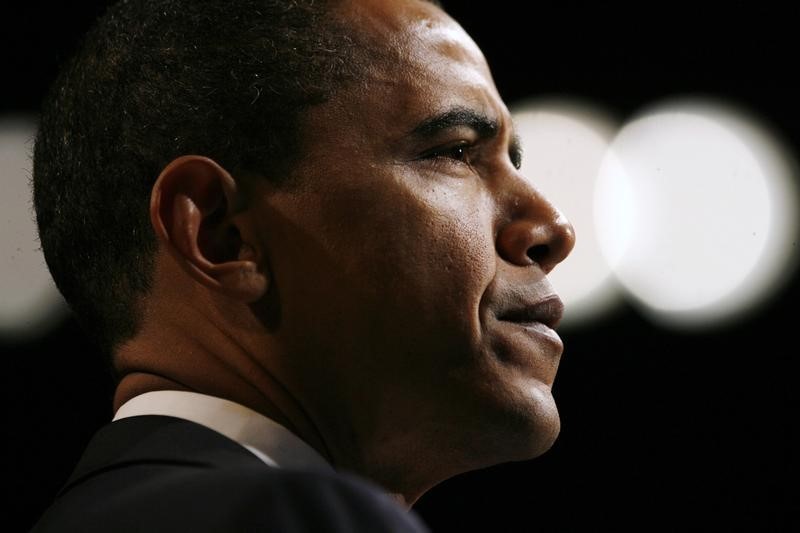By Lawrence Hurley
WASHINGTON (Reuters) - Three years ago, Supreme Court Chief Justice John Roberts cast the tie-breaking vote in a ruling that saved President Barack Obama's signature healthcare reform. As the high court prepares to weigh another challenge that could shatter Obamacare, a review of Roberts' recent votes and opinions suggest he could again sway the case the government's way.
The conservative challengers in the case aim to persuade Roberts and the other eight justices that the federal government has overreached by providing tax subsidies to millions of people in 34 states that didn't create their own insurance exchanges.
Their argument will revolve around wording in the 2010 law that insurance would be provided through exchanges "established by the state," which they argue rules out a federal role.
But in several key cases in recent years Roberts has voted in ways that could favor the government's arguments. He has raised concerns about upsetting the balance between federal and state law, particularly when there is ambiguity in a law's wording. He has also recognized the need to consider the overall context of a law, not just an isolated phrase.
The government says the Obamacare law, read as a whole, shows the subsidies were intended to be available nationwide.
Oral arguments are set for March 4, with the ruling expected by the end of June. If the challengers win, millions of people in states that do not have their own exchanges would lose the subsidies, dealing a potentially crippling blow to Obamacare.
Appointed by Republican President George W. Bush in 2005, former corporate lawyer Roberts joined the court's liberal wing in the 2012 case, which ruled Obamacare was constitutional.
Roberts may be the most likely of the five conservative justices to side with the four liberals on the court, but Anthony Kennedy, often the swing vote in close cases, could also be in play for the government. It is, however, difficult to predict how any individual justice will vote, particularly before hearing his or her questions at oral arguments.
Although the recent cases testing the interpretation of statutes are on a range of subjects, they give an insight into the legal methodology that Roberts uses.
STATE RIGHTS
Last year, Roberts wrote an opinion in a criminal case in which he cited states' rights in relation to Congress' power to implement treaties the U.S. government has signed. Lawyers for a Pennsylvania woman accused of trying to poison her husband's lover said Congress had overstepped in interpreting a treaty to cover crimes involving household chemicals.
In throwing out the woman's federal conviction under a chemical weapons law, Roberts signaled his concerns about infringing on the rights of the states, which usually play the lead role in prosecuting such crimes. If there is ambiguity in a statute, he wrote, the court should attempt to interpret the law in a way that does not harm the states.
The government has cited that case in support of its Obamacare defense, arguing that a ruling against the law would similarly have an unintended negative impact on states. The healthcare law does not explicitly say that subsidies would be denied to people in states that did not set up exchanges.
Jonathan Adler, a professor at Case Western Reserve University School of Law and one of the architects of the challengers' legal theory, conceded in an interview that the states' rights question could appeal to Roberts and Kennedy.
"I think that's a serious argument," he said.
The government is also highlighting a case from 2014. Then, Roberts was in the majority in partially upholding the Obama administration's first regulations to address climate change.
Roberts signed on to conservative colleague Antonin Scalia's majority opinion, which stressed the notion that interpretation of statutory language concerns not just the specific phrase at issue but also the broader context. Along with Kennedy, Roberts has voted most often since 2005 to support a government agency's interpretation of the law, according to a 2014 survey by Jack Beermann, a professor at Boston University School of Law.
Roberts has not always deferred to the government, even if warned of major consequences. In January, he rejected the government's interpretation of a whistleblower law despite what he conceded were genuine security concerns about the disclosure of sensitive information. He threw the ball back to the Republican-controlled Congress, as he could do with Obamacare.
"Those concerns are legitimate. But they are concerns that must be addressed by Congress or the president, rather than by this court," Roberts wrote.
